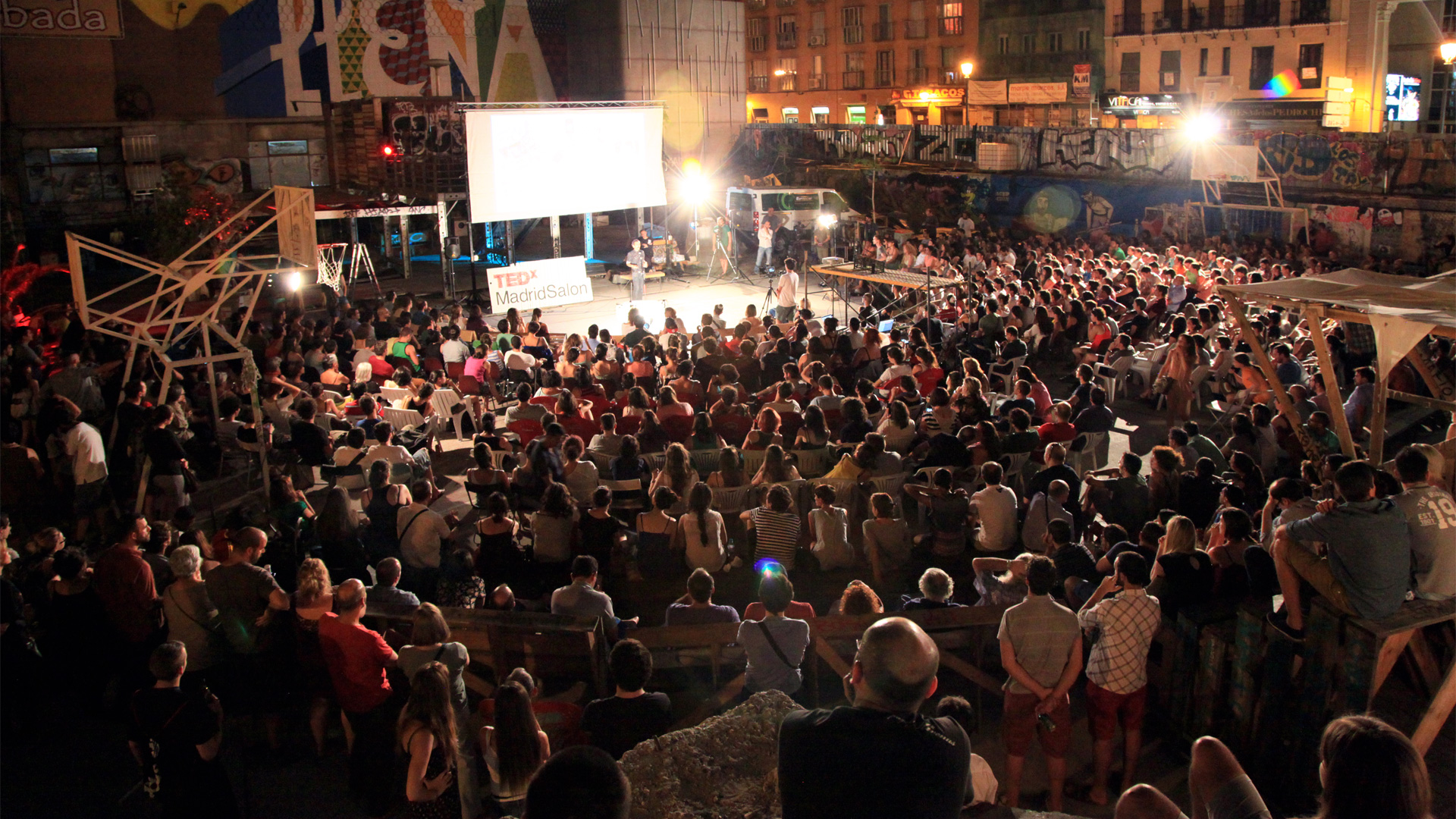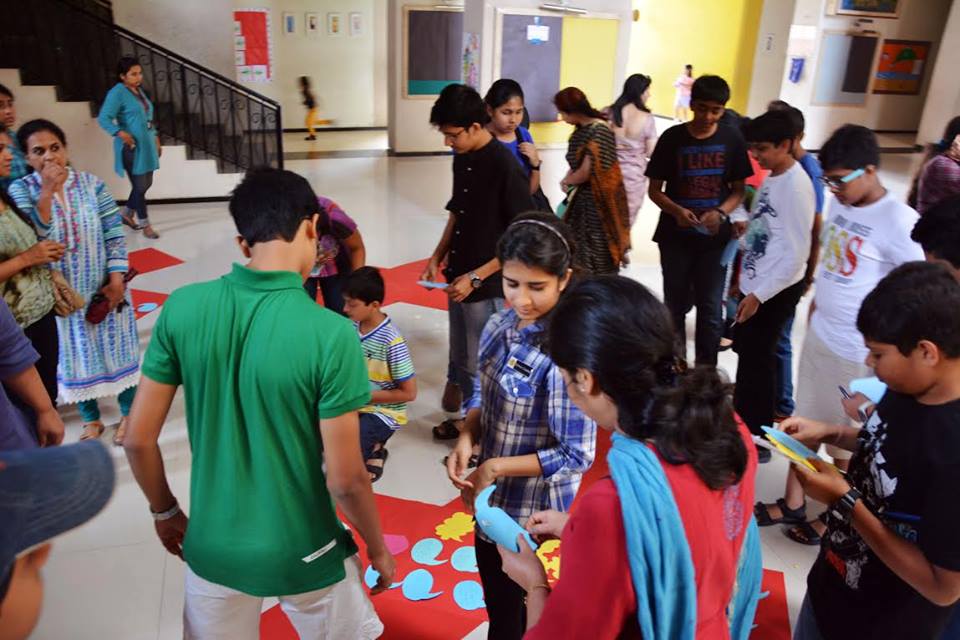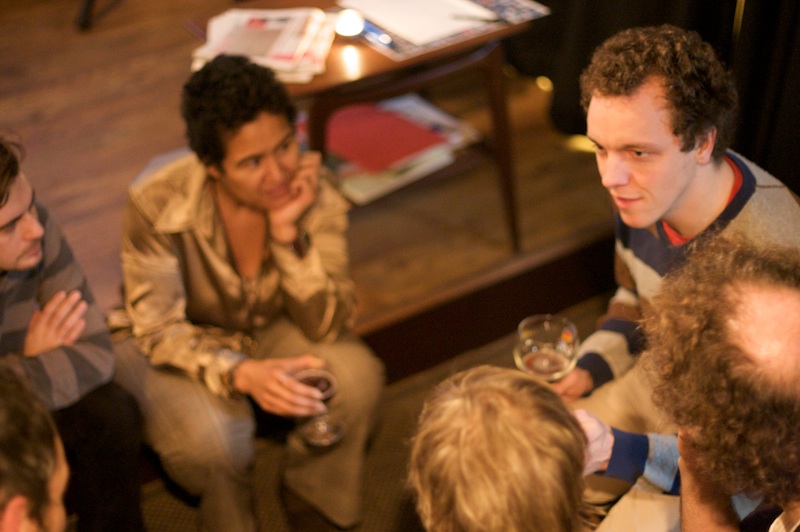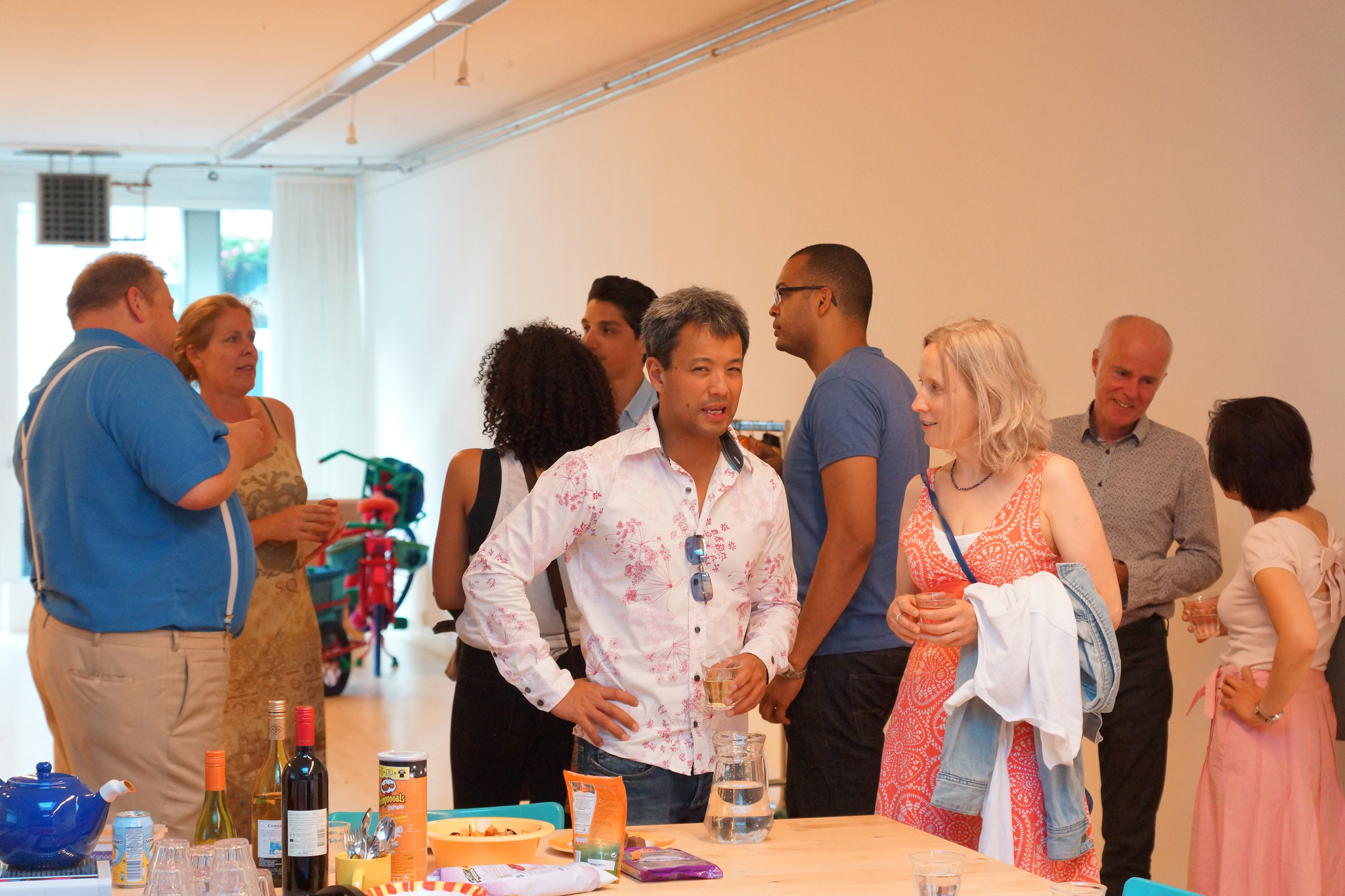
TEDxMadrid’s most recent salon took place in an overflowing theater under the stars. “You cannot put a door on it!” says organizer Antonella Broglia of their atypical venue. “The ideas are flying in the air, into the windows of buildings.” Photo: Courtesy of TEDxMadridSalon
To attend a TEDxMadrid conference, residents of the city must fill out an application and have a ticket in hand. But on a balmy evening this July, more than 800 people spontaneously stumbled into a TEDxMadridSalon event held in El Campo de Cebada, an outdoor square that used to be a hole for the city’s swimming pool. Some attendees already knew about TED; most did not. A few trickled out after a few minutes, but most stayed all night, watching TED Talks on a giant projection screen and listening to live speakers discuss innovations in their neighborhood.
This salon was organizer Antonella Broglia’s 25th TEDx event, but it was her first held out in the open, with the total collaboration of the local community. “It was simply incredible,” she said. “An experiment for citizen participation.” Fired up by the night’s success, Broglia and her team have two more salon events, in the same spread-ideas-through-the-street vein, in the works.
From public squares in Madrid to tasting rooms in breweries in Alabama and schools in Sao Paulo, more TEDx organizers are choosing to hold bite-sized salon sessions this summer, between their larger events. They’re doing this for an important reason: to build community, which is both the engine and cornerstone of TEDx.
Salon events share the same characteristics: brevity, opportunities for conversation and heightened interaction between the speaker and audience. Think of it as a dinner party with the smartest people you know. Short and sweet, each event lasts a couple of hours rather than being an all-day affair. And unlike larger annual TEDx events, salons do not have to be as broad in topic—they can focus on any issue, even a question that’s of interest. Organizers only have to film the event if there are live speakers. They can plan them with a short lead-time, allowing for salons that are timely, hinging on a specific topics in the news. Though the salon’s flexible nature allows it to take varied forms, salon attendees always watch a selection of TED Talks, and occasionally a few live speakers, followed by discussions about the ideas.
Over the years, TEDx events have evolved into microcosms of their local community, each event piecing together its own brand and identity. Salons, with their casual, intimate and malleable structure, harness the hands-on, community-focused spirit, anchoring a TEDx program. Because they happen more frequently, peppered between larger events, they create a special social cohesion.
“Salon events are the backbone of TEDxPune,” says Abhishek Suryawanshi, who brought TEDx to Pune, India. Fellow organizers agree with him that salon events function as a source of continual nourishment for each individual TEDx, feeding into the community that they have already built. All of the little ripples add up in the end to create waves.

In a group activity for a TEDxPuneSalon at The Orchid School, students wrote responses to the question “What inspires you?” on to colored paper. Organizer Abhishek Suryawanshi plans to organize a salon in a local prison next. Photo: Courtesy of TEDxPuneSalon
Even with their commonalities, a salon event in a bar in Soweto, South Africa, will not be identical to one in a university in Tokyo, Japan. In The Netherlands, Ralph Oei and his team put a cap on the attendee count at 25 for TEDxTheHagueSalon events because they’ve found that smaller crowds breed camaraderie, allowing guests to connect and open up to each other. Meanwhile, in Antwerp, Belgium, at TEDxFlandersSalon, the audience breaks up into groups of five or six for discussions after watching a TED Talk. TEDxMadrid holds lively debates that hundreds of people can participate in. TEDxStockholmSalon encourages their attendees to get together before and after the event, during the break and on social media post-event. Whether salon events are a full-scale production or brown bag lunches, created around a single idea or many, both attendees and team members are interested in fostering new relationships around the discussion of ideas. In that way, salons are a great experimenting ground—an opportunity for TEDx teams to test innovations, and even speakers, for their larger events.
“We are living in such a virtual way that getting together physically requires establishing new values. You can see all these TED Talks at home, so why come?” asks Broglia of TEDxMadrid. “You come to get together with other people. It’s not for the talks; it’s for the people.”
While July’s open-air salon was a first for Broglia and her team, they have put on about a dozen more intimate salon events. TEDxMadrid salons have focused on a wide range of subjects from poop, building off of Rose George’s talk “Let’s talk crap, seriously,” to storytelling, with a screenwriter speaking live about how to write a satisfying ending to a TV series. These hyper-focused events draw generalists as well as people who feel particularly invested in that topic, says Broglia.
Salon events are sticky. New attendees end up hanging on and coming back for more, over and over again, allowing the community as a whole to keep growing organically.
Christophe Cop, of TEDxFlanders in Antwerpen, Belgium, has also seen this effect in his events. He and his team have been experimenting with targeted events that draw in specialized audiences. For example, for a salon about alternative currencies and different kinds of economies, the entire BitCoin community of Belgium showed up. In one about the experience of the migrant community, many migrant individuals showed up and watched their very first TED Talk. At an event about education, 32 teachers attended, excited to share their stories. Being able to tap into other communities and draw in new audiences is another huge perk of salon events, Cop says.

Dim café lighting helps keep the vibe cozy and open at a TEDxFlandersSalon. Christophe Cop and his team challenge attendees to sit in groups with people they don’t know. Photo: Courtesy of TEDxFlandersSalon
Cop encourages his fellow team members to lead the planning and execution of their own salons, and even invites anyone who wants to create a TED-like event to join their team to curate a TEDxFlandersSalon. In this way, he keeps opening up their network; new curators bring their email lists and connections. This falls in line with Cop’s worldview. “I’m a scientist, so I think it’s important for more people to know what humanism and rational thinking are. Humanity cannot go forward if we don’t have more people who have clear minds,” he says. The idea, eventually, is to bring subgroups together and see what discussions and collaborations rise to the surface.
Salon events do more than keep a community connected; they also keeps the organizing team unified and immersed in the movement. “TEDxSalon events are organized on a relatively short notice, which forces us team members to meet often and keep the brainstorming alive, once a theme and a date have been selected,” says Valentino Pacifici of TEDxStockholm. And even though organizing more events on top of a standard one can be stressful and time-consuming, Pacifici says it is also enriching. The numerous brainstorms around themes and logistics keeps a team connected and engaged.
Among attendees, impact comes in small doses and is, in most cases, wholly personal. But that does not mean it isn’t powerful. At TEDxTheHagueSalon, attendees share personal moments of insight and the team was excited to hear audience members say that they’re embracing a kinder philosophy of success after watching Alain de Botton’s TED Talk, or that they discovered a new talk they wanted to share with their office. Pacifici of TEDxStockholm says that some attendees have found love, a job or a mentor at their salons.
In Pune, India, salon events in underprivileged communities have transformed what kids aspire to be when they grow up. Organizer Suryawanshi says that they start off listing a cricket player or Bollywood celebrity, but then change their tune. “We showed them TED Talks for six months, and now they say, ‘I want to be Pranav Mistri, Sheryl Sandberg, Kiran Bedi.’”
Over 10,000 events in, the TEDx program is its own living, breathing self-sustaining organism. Salon events help make a dent. As Broglia puts it, “People get together virtually all the time—salons are a way for them to be physically in the same place together.” She adds that salons take talks from being an individual experience, to something shared. “TED Talks are not there for you to just agree with,” she says. “When people get together to listen and discuss new ideas—I cannot imagine something more important.”

“At TEDxTheHagueSalon, we like to get to know our guests up close and personal,” says organizer Ralph Oei, pictured in the center. “The intimate scale of a salon event – our limit is about 25 guests max – allows us to do just that. This leaves us ample room for connection, conversation and sharing personal stories.” Photo: Courtesy of TEDxTheHague
Comments (3)